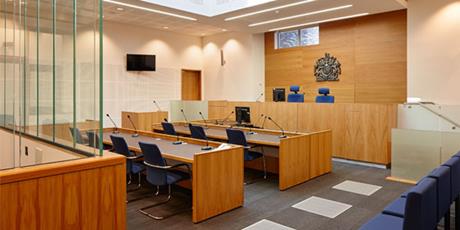Unacceptably low numbers of prosecutions for rape will continue without stronger reforms to the criminal justice system, the Home Affairs Committee has found.
In a report published today MP’s welcome attempts to reform policing, the CPS and the court system to reverse the precipitous fall in prosecutions over the last five years. However,they warn that in many cases reforms are localised or still in development and will require significant funding to make an impact at a national level.
In the year to September 2021 there were 63,136 rape offences recorded – an all-time high
The number of completed rape prosecutions dropped from 5,190 in 2016/17 to 1,557 in 2020/21
The trauma of going through investigations and lengthy delays may have contributed to 63% of adult rape investigations being closed between July and September 2021 because the victim no longer wished to continue
The Government’s Rape Review, setting out its strategy for reversing this drastic decline in rape charges and prosecutions, lacks ambition. It targets a return to 2016 prosecution levels by 2024, however while this would reverse a steep decline it would merely be going back to a level that was widely regarded as poor. There is also little confidence that this target will be achieved.
The Home Affairs Committee calls on the Government to go much further, much faster and drive change in how rape and sexual offences are handled in policing, the Crown Prosecution Service and the courts to create a significant increase in the volume of prosecutions and convictions.
The report finds that reforms will need to focus on the experience of victims attempting to get justice. Lengthy delays in cases reaching court, harmful evidence-gathering processes and poor provision of support services are turning people away from seeking justice. Programmes intended to improve performance in each of these areas are welcome but still in pilot stage and will require improved funding to be rolled out nationally.
Dedicated rape teams and specialised training for officers would significantly improve the police response to rape and sexual offence cases but are yet to be set up in many forces. Data concerning the number of specialised officers and wider dedicated services is poor and will need to improve if the criminal justice response is to be better coordinated.
Publishing the report, Dame Diana Johnson MP said:
“The collapse in the number of prosecutions for rape and sexual offences over the last five years is truly shocking and completely unacceptable. While it is clear that significant effort is being put in to reversing this decline across the criminal justice system, there is much further to go. Thousands of victims are failing to get the justice they deserve and this has to stop.
From now on the focus must be on supporting the victims. Reporting an incident should be the beginning of getting justice but instead has become a source of further pain. The fact that even now nearly two thirds of cases collapse because a victim may not be able to bear going forward is unimaginable.
We need to see much more ambition and focus. We need better data collection to understand exactly what resources are available to handle rape cases at a local level and how they are performing. Specialist support needs to guide victims throughout the process and improved counselling to deal with the long-term effects. We strongly urge the Government to further pilot the provision of independent legal advice to victims and survivors grappling with requests from the police to access data from their phones or third-party material.
From now on there must be constant review and reform of every element of the system handling rape and sexual offences. There cannot be a single step back until prosecutions and convictions are far higher than they were even in 2016.”







